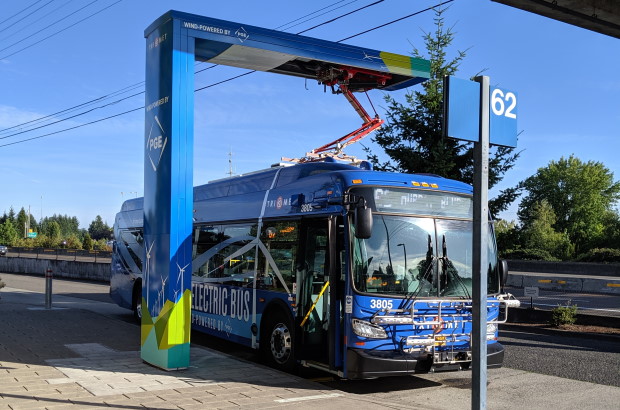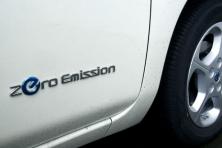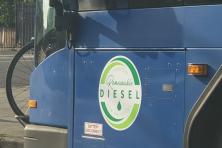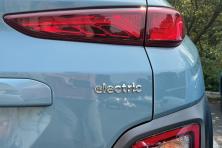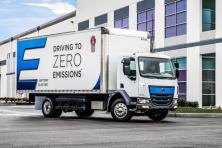This summer’s record-hot temperatures, heat waves, and soaring gas prices reminded us to keep pushing on climate action and accelerating towards clean fuels to power how we get around in our communities. With the transportation sector making up Oregon’s largest share of carbon pollution, it’s been encouraging to see government agencies step up to propose climate smart rules for our state.
Cleaner cars for Oregonians
The transportation sector makes up about 40 percent of Oregon’s greenhouse gas emissions, of which, 62 percent is from passenger cars and trucks, while about 27 percent are from heavy-duty vehicles. You might have seen the recent news that California has announced a move (pending federal government approval) to accelerate the sales of all-electric passenger vehicles.
This December, Oregon’s Environmental Quality Commission (EQC) will be voting on that rule, called the Advanced Clean Cars II (ACCII) rule, which would reduce tailpipe emissions standards from new passenger vehicles like cars, pickup trucks, and SUVs, starting with the 2026 model year through 2035. This rule would strengthen Oregon’s vehicle pollution standards for all new light-duty cars sold so that by 2035, 100% of new cars sold must be zero emission vehicles.The ACCII rule update is critical for Oregon to reduce air pollution and meet our state’s transportation emission reduction goals and we would join California and Washington and several other states when we adopt the rule.
Cleaner fuels for Oregon
Since its adoption in 2016, the Clean Fuels Program has cut nearly 6 million tons of greenhouse gas pollution and replaced one billion gallons of gasoline with cleaner fuels, making it one of Oregon’s most successful policies for reducing climate pollution. Earlier this summer, the Department of Environmental Quality (DEQ) held a public comment period and key stakeholders and experts weighed in on why expanding this program makes sense for our state.
For example, Burgerville and SeQuential Biodiesel penned an opinion piece to educate folks that fish and chips fuel a diesel engine and the need to expand the program:
“[b]ig and small restaurants, including Burgerville, around the region are part of a growing network that has their used cooking oil collected by local biofuels companies and refined into sustainable, cleaner-burning transportation biodiesel blends for a wide range of vehicles. The PNW-loved premium fast food restaurant has been recycling their oil with SeQuential for over ten years, resulting in 840,000 gallons of biodiesel! Oregon has the Clean Fuels Program to help us accelerate the transition from fossil fuels to cleaner burning, locally produced fuels.”
Tim Miller, Climate Solutions board member and of Oregon Business for Climate, also pointed out in the Portland Business Journal, that:
“Savvy Oregon businesses with fleet vehicles know that transitioning to cleaner renewable fuels and electric vehicles is a smart move. The long-term savings are well worth it – even without counting the environmental benefits. But, in the case of electric vehicles, the upfront vehicle costs and the need for charging infrastructure can get in the way of what would be an easy investment decision. This is exactly why our [Clean Fuels Program] is so powerful. The flow of credits generated by charging a company’s fleet vehicles dramatically improves the economics and can be used to address upfront costs. At the same time, the program spurs market-driven investments by others that drive down costs and expand the market for electrification and cleaner fuels.”
On September 22nd, the Oregon Environmental Quality Commission (EQC) will vote on the expansion of our clean fuels program to 37% by 2035, to achieve greater climate pollution reductions.
So what can you do now?
To start, save the date for the Department of Environmental Quality’s next hearing on September 22nd. They’ll both be voting on the clean fuels expansion and also taking public comment on the Advanced Clean Cars II rule. We need your help to ensure that Oregon joins California and Washington and adopts the new rule for clean cars to meet our climate goals and improve air quality for Oregonians. Your voice matters and we’d love your support at the online hearing! We will be sending out an action alert, early next month with talking points and guides to help craft your testimony so let us know if you want more information on the hearing!
Thanks for all you do, and looking forward to connecting this fall for cleaner transportation!
